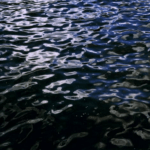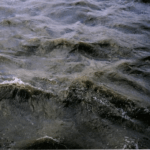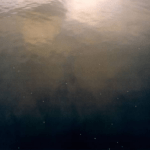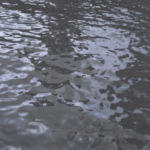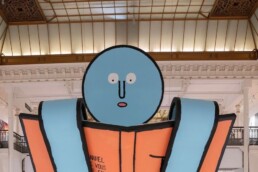What young parent has not found themselves wondering what their child will be when they grow up? (Some of us may still be wondering ourselves, “what do I want to be when I grow up?”). Coding classes, Chinese lessons, Business Skills for youngsters… We’re all trying to second guess the professions of the future. And what parent can entirely resist the temptation to project our own ambitions on our kids? It was about the time we we stood before the blue majesty of the Perito Moreno glacier in Argentina, that we wondered, “is there such a thing as professional hydrologist?”. The previous summer, we had stood with the girls admiring what’s left of the Aletsch glacier in Switzerland. Statistics concerning the retreat of South America’s mighty glaciers were even more alarming. While the debate between activists and deniers rages, the world’s biggest insurance companies are quietly shoring up their reserves, anticipating ever more frequent weather related disasters. What can we do to insure ourselves, short of taking out increasingly expensive property and casualty insurance? Knowledge may be the best form of insurance, as a number of schools in the US now seem to acknowledge. California’s deepening drought has prompted the question, should water be taught in the classroom? What’s the water intensity of the way we live? Are there quantum qualities of water that we’re just beginning to understand? How is water scarcity shaping the geopolitical conflicts we’re likely to see in decades to come? Gold is celebrated as the ultimate store of value. Ultimately, which resources are the most valuable? Sunshine, soil and, perhaps above all, clean water. These are the primary resources without which there can be no agriculture, no industry, nor the civilsation we have come to cherish.
Romas Viesulas
I divide my time between home in Portugal – taking road trips to Latin America in search of investment opportunities – and London, where I often present the current affairs programme on Monocle 24 Radio. For Pirouette, I'll take my inspiration from The Swiss Family Robinson. Life with kids is certainly an adventure. It can seem easy to feel shipwrecked however on the high seas of a rapidly changing, ever more globalised world. How can we ensure our children have the tools they need to survive, even thrive?
Subscribe to Pirouette's monthly Newsletter.
You might also like
October 24, 2024
A Day in the Life… Margaux Giudicelli, Loumio
A day in the life of a kids' swimwear brand owner. Looking for new sustainable swimwear to offer your customers. Well check out eco-friendly, stylish, and protective children’s swimwear for a…
October 21, 2024
Shrimps x BINIBAMBA
Pirouette loves a good collaboration.Wrap your little ones up this holiday season with the nostalgia-tinged tones of the Shrimps x BINIBAMBA collection. Capture the cosiness of Christmas with…
August 23, 2024
Another new store opening for The Animals Observatory in South Korea.
A new store opening for The Animals Observatory in South Korea at Daejeon Shinsegae Art & Science:1 Expo -Ro, Yuseong-Gu Daejeon taking the number of store mon-brand stores to 4 in the country.…
February 29, 2024
Jean Jullien’s ‘Paper People’ at Le Bon Marche Rive Gauche, Paris
If you're in Paris make sure to pop into Le Bon Marche, Rive Gauche - there you will encounter two gigantic blue paper people created by Jean Jullien. Art set in a retail space ensuring an enhanced…
October 6, 2021
Pirouette kicks back into action
After being hacked & disabled we're back to bringing the whats what in Kid's fashion & lifestyle! Pirouette has been a little quiet for a while. In part at least because I've been working for…
August 27, 2020
Little Creative Factory AW20 collection ‘Unexpected Poetry’ launches today!
It's been a year since founder and designer of Little Creative Factory made the big move to the even bigger Apple with her lovely family. What a year it has been, there's no stopping this family…
November 12, 2019
Pirouette #CoupDeCoeur: Quiet Town Shower Curtains
The covetable shower curtain is quite the elusive thing to discover, however Brooklyn based Quiet Town's wonderful designs are something a little bit special. Discover Pirouette's #CoupDeCoeur Quiet…
October 21, 2019
Maison Mangostan x Melijoe
Sneaker addicts at the ready! Colourful and covetable footwear label Maison Mangostan and Pirouette favourite kid’s fashion retailer Melijoe have come together to create a very special limited…
September 27, 2019
Photography: The Many Faces of the Grown Man’s Self – Léa Wormsbach
Proving studio shoots need not be boring - a rich deep colour palette can project a luxury aesthetic and stand out from the saturated tendency of standard catalogue shots. The photography of Léa…

